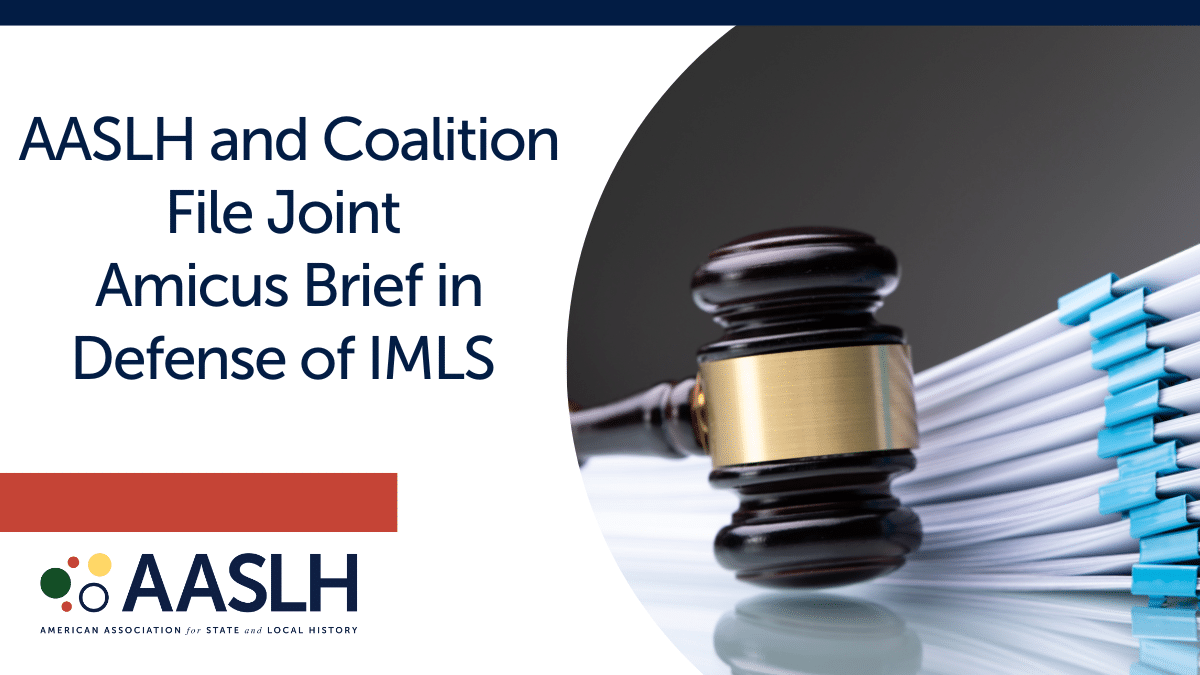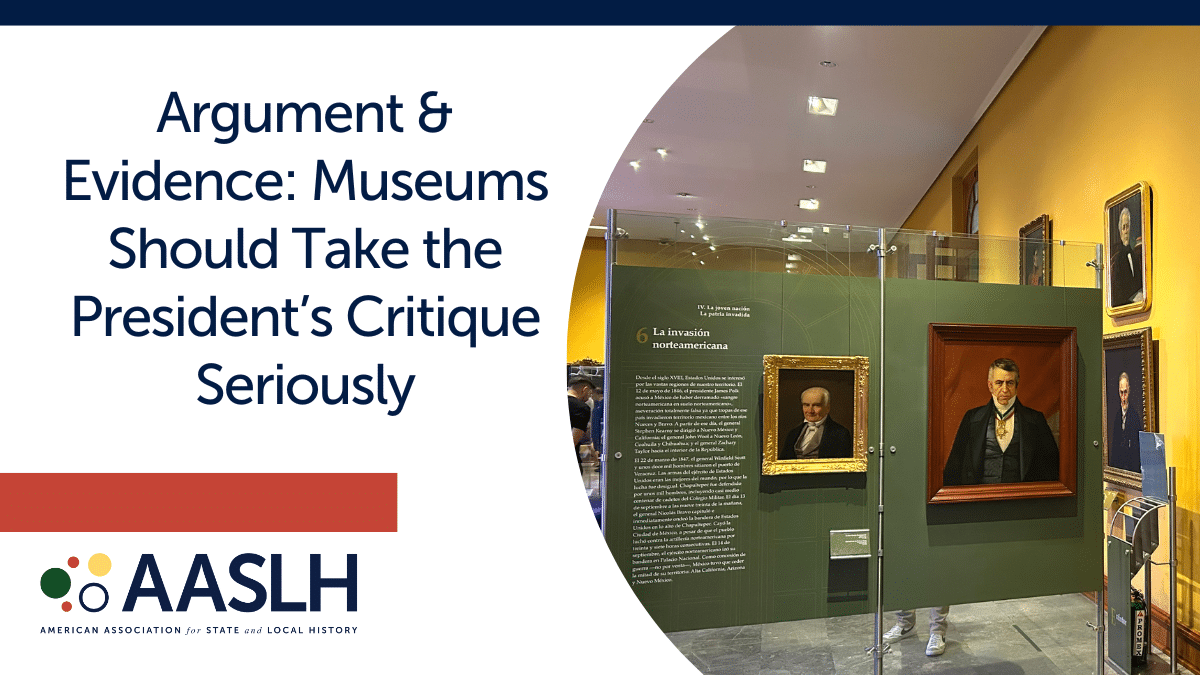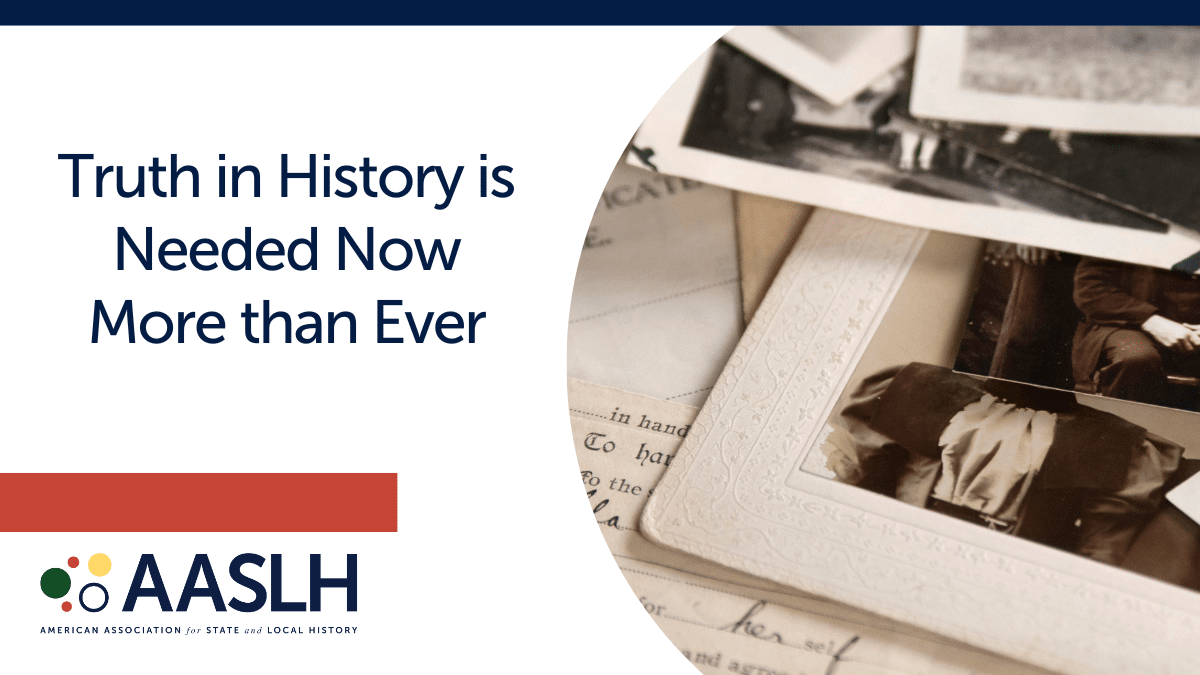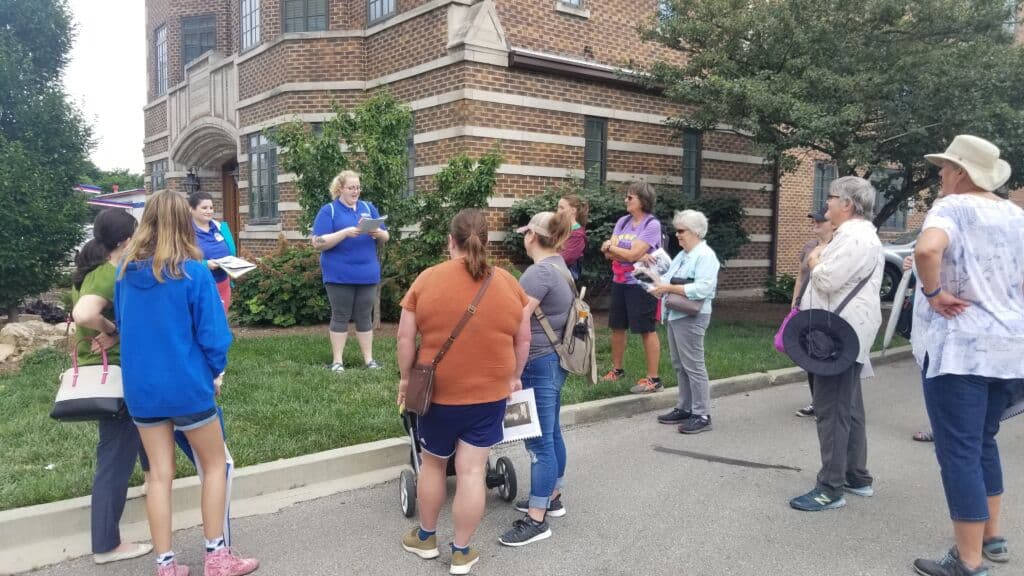
Cheyenne Grimes (IHS intern 2020-2021) leads a walking tour she researched and wrote.
By Bethany Hrachovec, Indiana Historical Society and AASLH Educators and Interpreters Committee
This two-part blog highlights key takeaways and observations from a session at the 2023 Association of Midwest Museums conference titled "Reaching and Supporting the Next Generation: Problems, Solutions, and Inspiration" presented by Bethany Hrachovec (Indiana Historical Society, Indianapolis, IN), Jeannie Regan-Dinius (Crown Hill Cemetery, Indianapolis, IN), and Anne Jordan (Little White School Museum, Oswego, IL).
The 2023 joint conference of the Association of Midwest Museums and the Association of Indiana Museums took place at the end of July with the theme "Braking Point." In auto racing, the "braking point" is the point in a turn where a driver must slow down in order to maximize acceleration on the straightaway safely; as the conference took place in Indianapolis, a racing theme was quite appropriate. The theme also encouraged attendees to reflect on current museum operations and examine how to maintain stability without losing forward momentum.
While considering the conference theme and session proposal form, I had the opportunity to reflect upon the various ways in which braking points have appeared in my own practice over the past few years. Combined with conversations with colleagues at the 2022 AASLH Annual Conference in Buffalo, New York, a trend emerged: internships.
Internships are vital learning opportunities for students as well as organizations, but they are often inequitable in the students they reach. While the trend of paid internships is continuing to grow, I am also aware of many minimum wage, barely above minimum, or paid experiences that persist in our field.
Young professionals are at a braking point. For young professionals entering the field, they are faced with high inflation, increased cost of living, out of control student loan debt, and often small pools of potential available positions unless they are willing and able to uproot their lives and relocate. While more internship positions are becoming paid opportunities, young professionals must still contend with competing demands of their often low-paying internship, school demands, life, and often an additional job with each required to be the priority. Young professionals need empathy (check out AAM's blog on emotional intelligence to see even more about how and why empathy is key in our field).
But young professionals aren't alone in that braking point. Organizations, and particularly professionals who supervise interns, are also at a braking point. The museum field needs to diversify, as it has needed to since its inception, but the students in traditional museum-related programs tend to skew towards well-intentioned, privileged, white individuals (check out how the Phillips Collection was seeking to address this pre-COVID). Due to changes in middle and high school curriculum, not to mention the effects of COVID, young professionals often lack basic skills in office processing software, file management, and other computing skills once taught in school. Supervisors must balance teaching seemingly core competencies while coaching through specific tasks and mentoring young professionals through the myriad of challenges they face.
The challenges faced by both young professionals and intern supervisors led me to bring together a panel for the conference to share our insights into the problems currently facing organizations and young professionals, share solutions we have explored, and share stories of how the next generation of museum professionals is inspiring us to think more deeply about our practice.
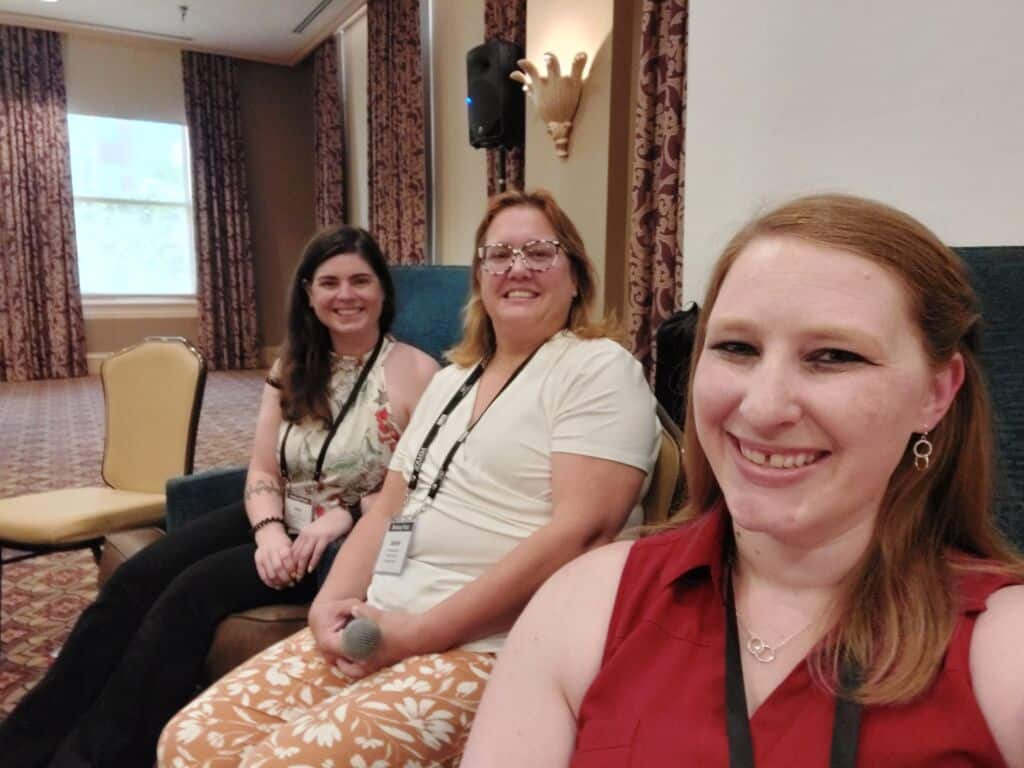
Anne Jordan, Jeannie Regan-Dinius, and Bethany Hrachovec at the 2023 AMM conference.
I do not claim to have all of the answers, nor did my co-panelists. My practice as an internship supervisor is shaped by my own background: throughout both my undergraduate and graduate programs I held three unpaid internships (requiring anywhere between 10 and 35 hours a week for up to twelve months), one paid internship, a handful of part-time and contract positions both in and out of the field, and paying my university for the privilege of saying that I held an internship for a cumulative 600 hours over two degrees. I was incredibly privileged to have a support system that allowed me to accomplish this. I've now overseen professionals of varying stages in their careers as well as interns and emerging professionals for over six years. My co-panelists brought their own experiences: Jeannie brought over two decades of experience managing interns and other staff in the historic preservation field, and Anne brought her experiences teaching students in museum studies at Aurora University. Missing from the panel was the voice of a young professional currently going through internships and/or academic training – I hope to correct this either at a future conference or other platforms. This blog shared a summary of the context which informed the key takeaways for supervisors that the panelists identified through our session, which will be covered in part 2.

